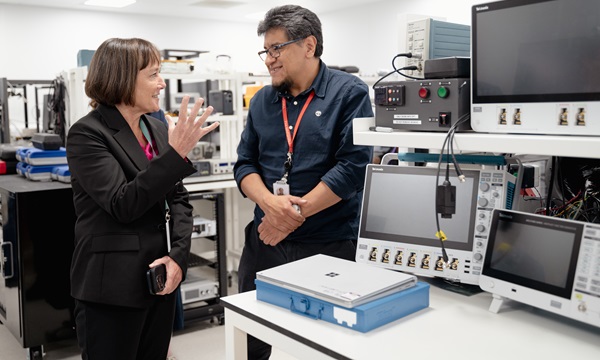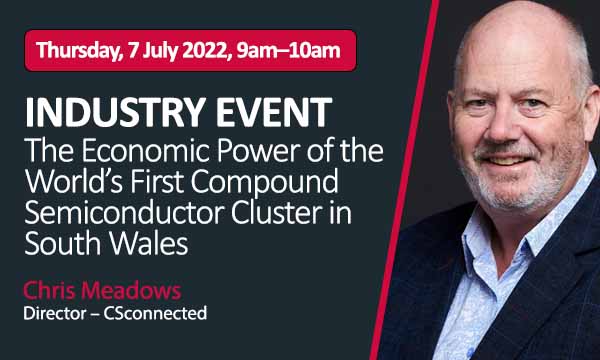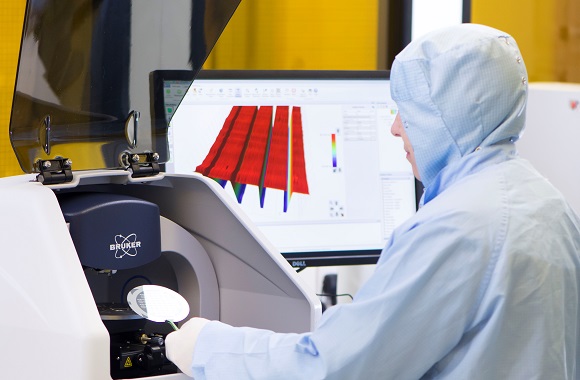
Semiconductors are everywhere in our lives, powering the technology we use daily, from mobile phones to cars. The global semiconductor market is set to reach a value of a trillion dollars in 2030, and Wales plays a pivotal role in this industry, thanks to our thriving cluster of semiconductor companies, research institutions, and skilled workforce.
For Wales to continue to lead in this vital sector, we need sustained investment and support.
The importance of semiconductors was brought into sharp focus during the pandemic when shortages disrupted industries worldwide, from automotive manufacturing to consumer electronics. This global dependency highlights why semiconductors are a strategic priority for many countries.
Here in Wales, we have unique strengths in compound semiconductors, which enable functionality such as creating light (LEDs and lasers), transmitting radio frequencies, and powering cutting-edge technologies for electric vehicles. These applications are the exciting side of semiconductors; they enable fundamental advances in areas like clean energy, telecommunications, and quantum computing.
Wales is home to the UK’s largest semiconductor fabrication facility, Newport Wafer Fab – currently owned by Vishay. It has operated since 1982 and is now undergoing further expansion and investment in the latest capabilities. Alongside global players like Microchip, IQE and KLA, and with strong academic partnerships with Cardiff and Swansea Universities, we have developed a world-leading compound semiconductor cluster. This cluster isn’t just globally recognised; it’s a source of economic strength, with productivity levels three times the UK average and jobs that pay nearly double the national average.
However, the future of this sector in Wales isn’t guaranteed. The semiconductor industry is capital-intensive and fiercely competitive, with nations like the US and EU heavily subsidising their industries through initiatives like the CHIPS Act. While the UK Government’s approach has been more reserved, the long-term economic and social benefits of supporting this sector are undeniable. For every pound invested, the returns are substantial, from high-value jobs to increased exports. These benefits ripple through local supply chains, creating a resilient and sustainable economy.
Investment in skills is equally vital. The semiconductor industry is knowledge-intensive, and while Wales produces enough PhDs in the field, we face a gap in mid-level vocational skills. Apprenticeships and targeted training programmes must be prioritised to ensure a pipeline of talent ready to meet the demands of a growing industry. We also need to inspire the next generation by showcasing the engaging career opportunities available in this sector, both technical and commercial. Outreach activities in schools and universities are a crucial part of this effort.
Another critical factor is the industry's “stickiness.” Unlike other industries that have seen jobs offshored, semiconductor facilities are highly stable once established. The presence of Newport Wafer Fab for more than 40 years is testament to this. Investing in the sector means investing in jobs at all levels, which permeate across our communities, providing long-term economic security in the region.
As Managing Director of CSconnected, my role is to drive the growth of this cluster. This includes working with Cardiff Capital Region, Innovate UK, and other stakeholders to ensure the industry’s sustainability. But we cannot do this alone. Clear and consistent government support is essential. This isn’t just about competing on a global stage; it’s about recognising the transformative potential of this industry for Wales and the UK as a whole.
The semiconductor industry is poised to lead Wales into a prosperous future. With continued investment, strategic planning, and a commitment to skills development, we can ensure that this sector remains a cornerstone of the Welsh economy, delivering high-value, stable jobs and significant economic benefits for decades to come. My message to policymakers is simple: invest in this industry, and we will deliver.





